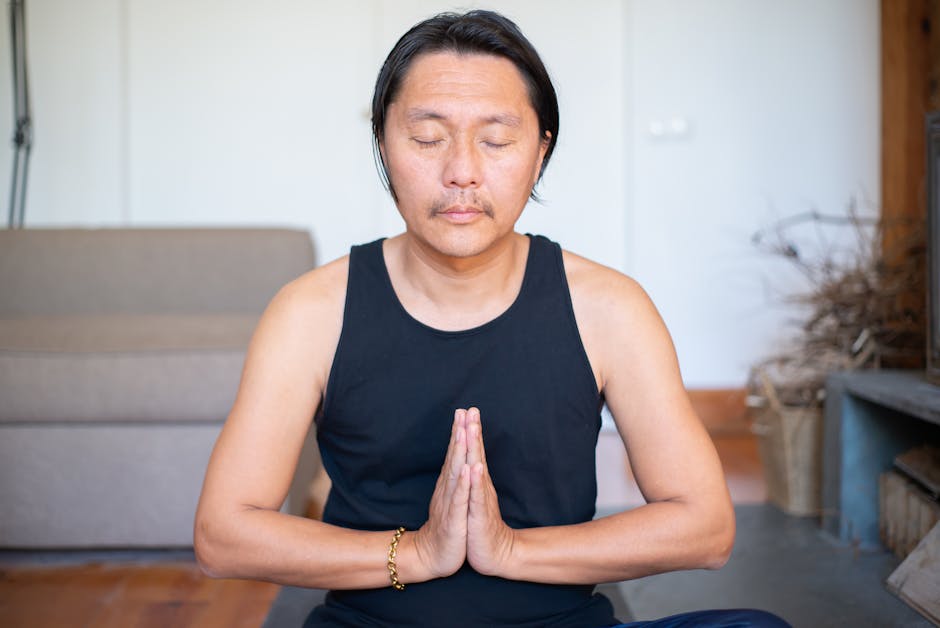Finding Peace in Daily Prayer
Have you ever felt overwhelmed by daily life? you’re not alone. Many people are searching for ways to find peace amidst the chaos. Daily prayer can be a powerful practice to help you cultivate calmness and clarity. In this article, well explore how prayer can bring peace to your life, what it means to pray, and how to incorporate it into your daily routine.
What is Daily Prayer?

At it’s core, daily prayer is a moment of connection. it’s a way to communicate with a higher power, reflect on your thoughts, and express gratitude. You don’t have to be religious to pray; many people find comfort in simple reflection or meditation.
When you pray, you pause your busy life. You take time to think about what matters most to you. It can be as simple as saying thank you for a good day or seeking guidance during tough times.
Why is Daily Prayer Important?

Daily prayer offers numerous benefits. Here are a few key reasons why it can be essential for your well-being:
- Reduces Stress: Taking a moment to pray can help calm your racing thoughts.
- Promotes Gratitude: Focusing on what you are thankful for can shift your mindset.
- Encourages Reflection: Prayer allows you to think about your life and your choices.
- Builds Connection: It can create a sense of connection to something bigger than yourself.
Research shows that regular prayer can lower anxiety and increase feelings of peace. A study published in the Journal of Health Psychology found that people who pray regularly report feeling happier and less stressed.
How Can You Start Your Daily Prayer Practice?

Starting a daily prayer routine doesnt need to be complicated. Here are some simple steps to get you going:
- Choose a Time: Pick a specific time each day that works for you.
- Create a Space: Find a quiet spot where you feel comfortable.
- Set an Intention: Think about what you want to focus on in your prayer.
- Be Consistent: Try to stick to your chosen time each day.
Whether it’s in the morning to start your day or at night to reflect, consistency helps reinforce your habit. Just like brushing your teeth, it becomes a part of your daily routine.
What Should You Pray About?

People often wonder what to include in their prayers. Here are a few suggestions:
- Gratitude: Thankfulness for the good things in your life.
- Guidance: Asking for help in making tough decisions.
- Peace: Seeking calmness during stressful times.
- Support for Others: Praying for friends or family in need.
Remember, theres no right or wrong way to pray. The key is to be sincere and open. You can use your own words or follow a specific format, like reciting a prayer from a book.
Can Prayer Be a Form of Meditation?
Absolutely! Many people find that prayer and meditation overlap. Both practices encourage mindfulness and focus.
When you pray, you might find yourself meditating on a word or phrase. This helps clear your mind. Just as meditation calms the spirit, prayer can ground you. it’s about being present in the moment.
What if You Feel Uncomfortable Praying?
If you feel unsure about prayer, don’t worry. Many people start in different ways. Here are a few tips to ease your discomfort:
- Start Small: Begin with just a few minutes each day.
- Experiment: Try different prayer styles, like spoken or written prayers.
- Use Resources: Consider guided prayer apps or books for inspiration.
Over time, you may find that prayer becomes more natural. Just like any other activity, practice helps you get more comfortable.
How Can You Make Prayer a Daily Habit?
Making prayer a daily habit is like building any new routine. Here are some strategies to help:
- Set Reminders: Use your phone to remind you when it’s prayer time.
- Keep It Visible: Place a prayer journal or reminder note where youll see it.
- Invite Others: Join a prayer group or invite a friend to pray with you.
Having support can make the practice more enjoyable. Plus, sharing your experiences can deepen your connections with others.
What Are Common Misconceptions About Prayer?
Many people have misconceptions about prayer. Here are a few of the most common:
- It Has to Be Formal: You don’t need special words or phrases. Speak from your heart.
- It Must Be Long: Short prayers can be just as powerful.
- it’s Only for Religious People: Prayer can be a personal practice for anyone.
Understanding these misconceptions can help you feel more comfortable with your practice. Remember, it’s about what works for you.
Can Prayer Really Change Your Life?
Many people believe that prayer can lead to positive changes. But how does it actually work?
When you pray, you often shift your focus. You may start to see things differently. This change in perspective can help you cope with challenges better. It can also enhance your relationships and overall happiness.
What Are Some Daily Prayer Techniques?
If you’re looking for practical ways to pray, here are a few techniques:
- Journaling: Write down your thoughts and prayers in a journal.
- Breath Prayer: Pair a simple prayer with your breathing.
- Scriptural Prayer: Use verses from a sacred text as a guide.
- Prayer Walk: Combine walking with prayer to connect with nature.
Experiment with these techniques to see which resonates with you. The goal is to find a method that feels right.
How Can You Deepen Your Prayer Experience?
Once you establish a routine, consider ways to deepen your experience:
- Study: Read books or articles about prayer to enhance your understanding.
- Listen: Play calming music or nature sounds while you pray.
- Reflect: Take moments to think about how your prayers are affecting your life.
Deepening your prayer experience can lead to greater insights and peace.
What Are the Takeaways?
Finding peace through daily prayer is a personal journey. Here are some key takeaways to remember:
- Prayer doesnt have to be complicated; keep it simple and sincere.
- Establish a routine that fits your lifestyle.
- don’t be afraid to explore different techniques and styles.
- Be patient with yourself as you develop this practice.
As you embark on this journey, remember that the most important part is to be open. Allow yourself to experience the peace that daily prayer can bring.
If youd like to read more about the benefits of mindfulness practices, check out this article on mindfulness techniques.
Finding peace in daily prayer is about more than just words; it’s about creating a space in your day to connect, reflect, and grow. Embrace the journey, and you might just find the calm youve been seeking.


